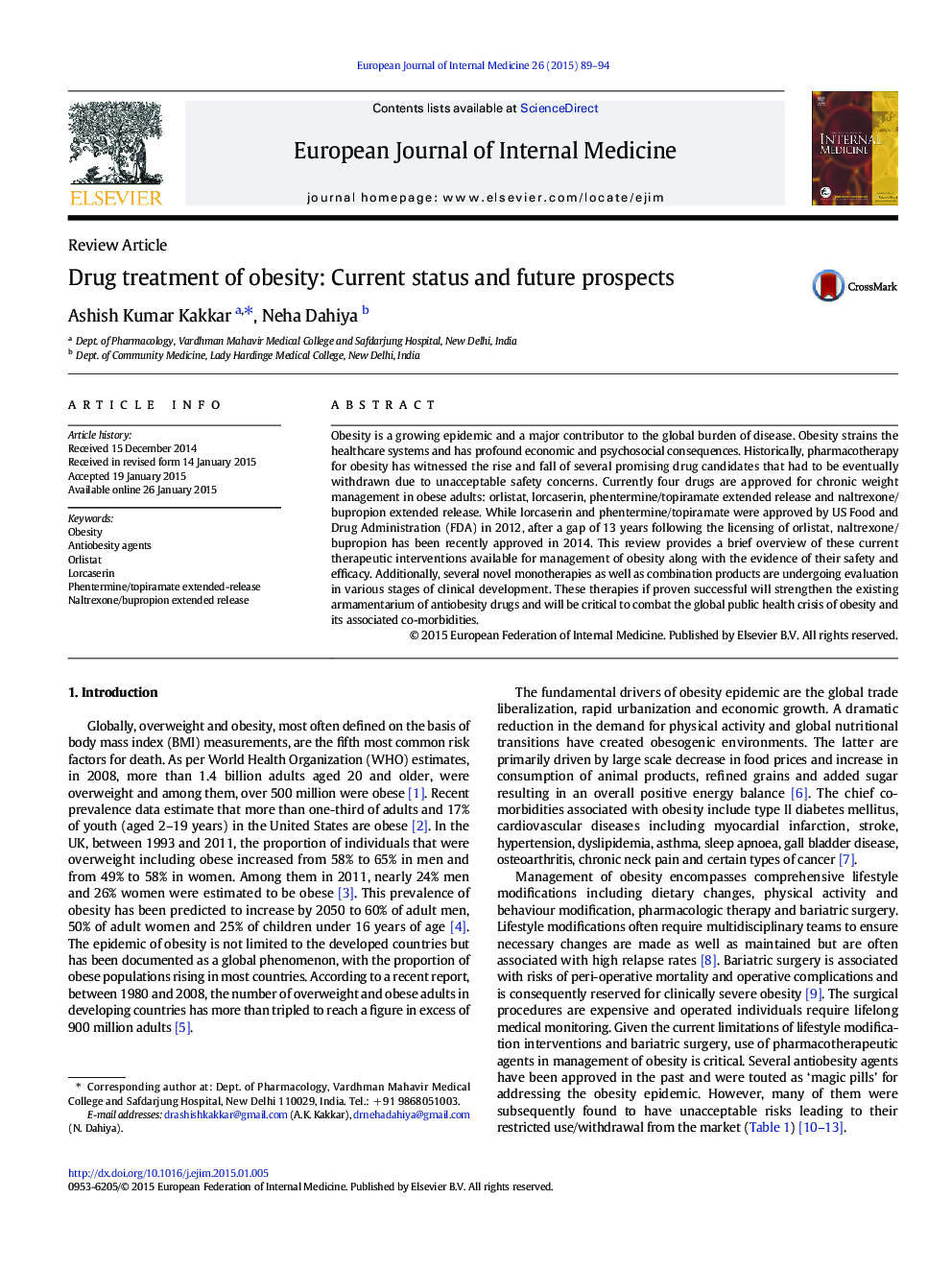| Article ID | Journal | Published Year | Pages | File Type |
|---|---|---|---|---|
| 3466422 | European Journal of Internal Medicine | 2015 | 6 Pages |
•Several antiobesity agents have been withdrawn from market due to safety concerns.•Currently approved drugs include orlistat, lorcaserin, phentermine/topiramate, and naltrexone/bupropion.•Several new therapies are being evaluated to address unmet safety and efficacy needs.•Polytherapy can possibly overcome counterregulatory responses and minimize adverse effects.
Obesity is a growing epidemic and a major contributor to the global burden of disease. Obesity strains the healthcare systems and has profound economic and psychosocial consequences. Historically, pharmacotherapy for obesity has witnessed the rise and fall of several promising drug candidates that had to be eventually withdrawn due to unacceptable safety concerns. Currently four drugs are approved for chronic weight management in obese adults: orlistat, lorcaserin, phentermine/topiramate extended release and naltrexone/bupropion extended release. While lorcaserin and phentermine/topiramate were approved by US Food and Drug Administration (FDA) in 2012, after a gap of 13 years following the licensing of orlistat, naltrexone/bupropion has been recently approved in 2014. This review provides a brief overview of these current therapeutic interventions available for management of obesity along with the evidence of their safety and efficacy. Additionally, several novel monotherapies as well as combination products are undergoing evaluation in various stages of clinical development. These therapies if proven successful will strengthen the existing armamentarium of antiobesity drugs and will be critical to combat the global public health crisis of obesity and its associated co-morbidities.
